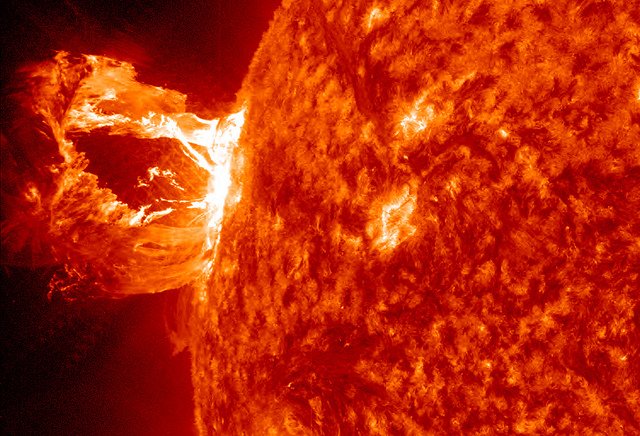The Sun had a massive solar explosion on April 16th.
A coronal mass ejection (CME) is a massive burst of solar wind, other light isotope plasma, and magnetic fields rising above the solar corona or being released into space.
Coronal mass ejections are often associated with other forms of solar activity, most notably solar flares, but a causal relationship has not been established. Most ejections originate from active regions on Sun’s surface, such as groupings of sunspots associated with frequent flares. Near solar maxima the Sun produces about three CMEs every day, whereas near solar minima there is about one CME every five days.
A beautiful prominence eruption shot off the east limb (left side) of the sun on Monday, April 16, 2012. Such eruptions are often associated with solar flares, and in this case an M1 class (medium-sized) flare did occur at the same time, though it was not aimed toward Earth. This event was seen by NASA’s SDO satellite.
“A large CME can contain a billion tons of matter that can be accelerated to several million miles per hour in a spectacular explosion. Solar material streams out through the interplanetary medium, impacting any planet or spacecraft in its path,” explains NASA, who told us that this particular blast reached to the far end of our solar system.
NASA’s Karen Fox said the “height” of the CME (from our perspective) was “25 earth radii high”—198,000 miles.
HD Video of the solar explosion:
[flickr 7084820027 640 480]
Find out more photos from NASA by clicking here

